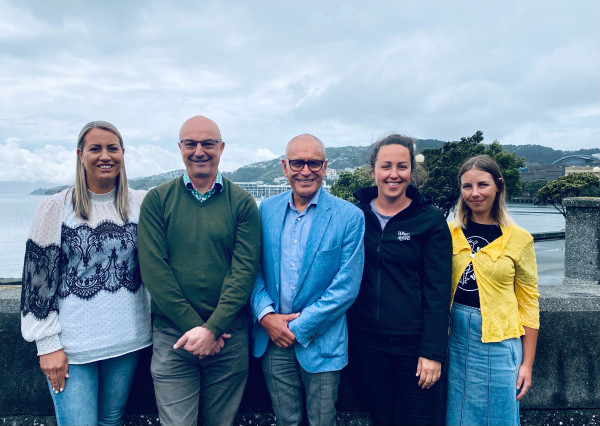Te Kōmihana Tōmua The Initial Commission
The Initial Mental Health and Wellbeing Commission (the Initial Commission) was set up to maintain the momentum of He Ara Oranga, the Government inquiry into mental health and addiction, and the work to transform Aotearoa New Zealand's mental health and wellbeing system while Te Hiringa Mahara was being established. The Initial Commission undertook some, but not all, of the functions of Te Hiringa Mahara.
The Initial Commission's work
Mā Te Rongo Ake, a report from the Initial Commission assessing progress of the government’s response to He Ara Oranga, the inquiry into mental health and addiction was published in March 2021. The Initial Commission’s interim report, He Ara Oranga - Mānuka Takoto, Kawea Ake / Upholding the Wero Laid in He Ara Oranga [PDF, 4.3 MB], was published in June 2020. It provided an early check-in on progress of government's response to He Ara Oranga, the inquiry into mental health and addiction.
The Initial Commission developed the He Ara Oranga wellbeing outcomes framework, a holistic outcomes framework for mental health, addiction and wellbeing for Te Hiringa Mahara to consider adopting. A report on Data gaps [PDF, 788 KB] was published.
In advance of the transfer of the mental health and addiction service monitoring function from the Mental Health Commissioner the Initial Commission commenced the development of the He Ara Āwhina pathways to support framework.
The Initial Commission supported establishment of the permanent Mental Health and Wellbeing Commission.
The Initial Commission Board

L to R: Dr Julie Wharewera-Mika, Kevin Hague, Hayden Wano (Chair), Kendall Flutey, Kelly Pope
The Initial Commission's Terms of Reference
Download their Terms of Reference:
The Initial Commission's reporting
The Initial Commission's reporting included an assessment of progress report, an interim report and thematic analysis of the Government’s response to He Ara Oranga, the inquiry into mental health and addiction.
Find more information on the Initial Commission's reporting below
-
Te Kōmihana Tōmua Pūrongo | The Initial Commission reporting
Read and download the Initial Commission's reporting on the Government's system transformation response to He Ara Oranga.
- Report
-
Co-development phase - public consultation feedback
Read more about our He Ara Āwhina co-development phase.
- Report
-
Wāhanga tautuhi takirua | Co-define phase
Read a summary and download our report on the He Ara Oranga wellbeing outcomes framework co-define phase.
- Report
-
Tarāwaho huatau | Conceptual framework
Following a co-design and consultation process the Board of the Initial Commission developed the conceptual framework, He Ara Oranga wellbeing outcomes framework.
- Report
-
Wāhanga raraunga | Data phase
Read and download our He Ara Oranga wellbeing outcomes framework data phase report.
- Report
